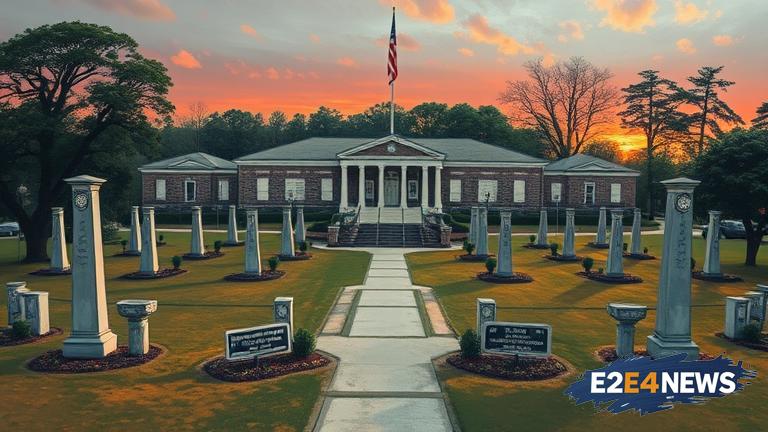The US military has been embroiled in a heated debate over the renaming of several bases that currently bear the names of Confederate generals. The issue has sparked a national conversation about the legacy of the Confederacy and the role of the military in perpetuating or challenging racist ideologies. Proponents of the renaming argue that it is a necessary step towards reconciliation and a way to distance the military from its problematic past. They point out that the Confederacy was a treasonous entity that fought to preserve slavery and that honoring its leaders is a slap in the face to African American service members and veterans. On the other hand, opponents of the renaming claim that it is an attempt to erase history and that the bases should be left as they are. They argue that the names of the bases are a part of American history and that changing them would be a form of cultural vandalism. The debate has been further complicated by the fact that many of the bases in question are located in Southern states where the Confederacy is still revered by some as a symbol of regional pride. Despite the controversy, the US military has announced plans to rename several bases, including Fort Bragg in North Carolina, Fort Benning in Georgia, and Fort Hood in Texas. The renaming process is expected to be a lengthy and complex one, with the military working to identify new names that are more inclusive and reflective of the country’s diverse history. The issue has also sparked a wider conversation about the role of the military in American society and the ways in which it can work to promote greater diversity and inclusion. Some have argued that the military should do more to address the systemic racism that exists within its ranks, while others have suggested that the renaming of bases is a symbolic gesture that does little to address the underlying issues. The debate over the renaming of military bases has also highlighted the deep divisions that exist within American society, with some people seeing the issue as a matter of great importance and others viewing it as a distraction from more pressing issues. As the US military moves forward with the renaming process, it will be important to consider the complex history and cultural context of the bases in question. The renaming of military bases is not just a matter of changing a name, but also of reexamining the values and principles that the military represents. It is a chance for the military to recommit itself to the values of diversity, inclusion, and equality that are enshrined in the US Constitution. The issue has also sparked a conversation about the ways in which the US military can work to promote greater understanding and reconciliation between different communities. Some have suggested that the military could play a greater role in promoting education and awareness about the history of the Confederacy and the impact of slavery on American society. Others have argued that the military should work to build stronger relationships with African American communities and to address the systemic racism that exists within its own ranks. The renaming of military bases is a complex and contentious issue, but it also presents an opportunity for the US military to reexamine its values and to work towards a more inclusive and equitable future. The US military has a long and complex history, and the renaming of bases is just one part of a larger conversation about the role of the military in American society. As the debate over the renaming of military bases continues, it will be important to consider the perspectives of all stakeholders, including service members, veterans, and local communities. The US military must work to build trust and to promote greater understanding and reconciliation between different communities. The renaming of military bases is a step in the right direction, but it is just one part of a larger effort to address the systemic racism and inequality that exists within the military and within American society as a whole. The US military has the opportunity to play a leadership role in promoting greater diversity and inclusion, and the renaming of bases is an important step towards achieving this goal. The issue has also sparked a conversation about the ways in which the US military can work to promote greater education and awareness about the history of the Confederacy and the impact of slavery on American society. Some have suggested that the military could play a greater role in promoting education and awareness about the history of the Confederacy and the impact of slavery on American society. Others have argued that the military should work to build stronger relationships with African American communities and to address the systemic racism that exists within its own ranks. The renaming of military bases is a complex and contentious issue, but it also presents an opportunity for the US military to reexamine its values and to work towards a more inclusive and equitable future.
